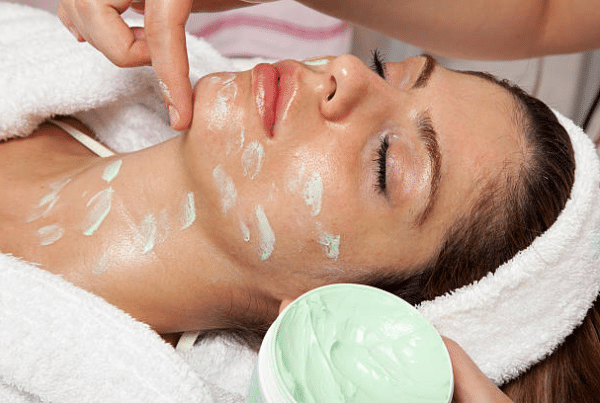In the pursuit of a radiant complexion, vitamin C stands as an unsung hero. This powerhouse nutrient, renowned for its countless health benefits, plays a pivotal role in enhancing the facial skin’s vitality. From tackling pesky blemishes to promoting collagen production, the wonders of vitamin C are boundless. In this article, we will unravel the secrets of what vitamin C does for the facial skin, diving deep into its transformative capabilities.
Understanding the Basics: What is Vitamin C?
Vitamin C, scientifically known as ascorbic acid, is a water-soluble vitamin found abundantly in fruits and vegetables. Its antioxidant properties make it a favorite among skincare enthusiasts.
What Does Vitamin C Do for the Facial Skin?
Brightening Your Complexion: Vitamin C as a Natural Skin Brightener
One of the remarkable attributes of vitamin C is its ability to brighten the skin naturally. By inhibiting melanin production, it fades dark spots, evens out skin tone, and leaves you with a glowing complexion.
Fighting the Signs of Aging: Collagen Production and Vitamin C
Collagen, the skin’s structural protein, is essential for maintaining elasticity and preventing wrinkles. Vitamin C stimulates collagen synthesis, helping your skin stay supple and youthful.
Shielding Against Sun Damage: Vitamin C as a Sunscreen Booster
While not a substitute for sunscreen, vitamin C enhances its effectiveness. It combats free radicals generated by UV rays, reducing sun damage and protecting your skin from premature aging.
Banishing Blemishes: Vitamin C’s Acne-Fighting Abilities
Vitamin C’s anti-inflammatory properties soothe irritated skin and help diminish acne scars. Its healing touch promotes faster skin recovery, making it an effective acne-fighting agent.
Hydration and Vitamin C: The Perfect Duo
Vitamin C supports skin hydration by strengthening the skin barrier. Well-hydrated skin is less prone to dryness and irritation, creating a foundation for a healthy, glowing complexion.
 Addressing Hyperpigmentation: Vitamin C’s Role in Reducing Dark Spots
Addressing Hyperpigmentation: Vitamin C’s Role in Reducing Dark Spots
Hyperpigmentation, often caused by sun exposure and hormonal changes, can be alleviated by vitamin C. Its skin-lightening properties fade dark spots, leaving your skin visibly clearer.
Antioxidant Defense: Guarding Your Skin Against Free Radicals
Environmental pollutants and UV rays generate free radicals that damage skin cells. Vitamin C’s potent antioxidant properties neutralize these free radicals, safeguarding your skin from harm.
How to Incorporate Vitamin C Into Your Skincare Routine
From serums to creams, there are various ways to introduce vitamin C into your regimen. Choosing the right product and using it consistently can maximize its benefits for your facial skin.
Are There Any Risks?
While vitamin C is generally safe for most skin types, some individuals might experience mild irritation. Patch testing and consulting a dermatologist can help mitigate potential risks.
DIY Vitamin C Masks: Enhancing Your Glow Naturally
Explore the world of DIY masks using vitamin C-rich ingredients like citrus fruits. These masks can revitalize your skin, leaving it with a refreshing glow.
Conclusion
Incorporating vitamin C into your skincare routine can lead to a remarkable transformation. From achieving a brighter complexion to combating signs of aging, this nutrient works wonders. Embrace the power of vitamin C and unveil a radiant, youthful version of yourself.
 5 6 1 . 8 1 0 . 0 5 5 5
5 6 1 . 8 1 0 . 0 5 5 5 








